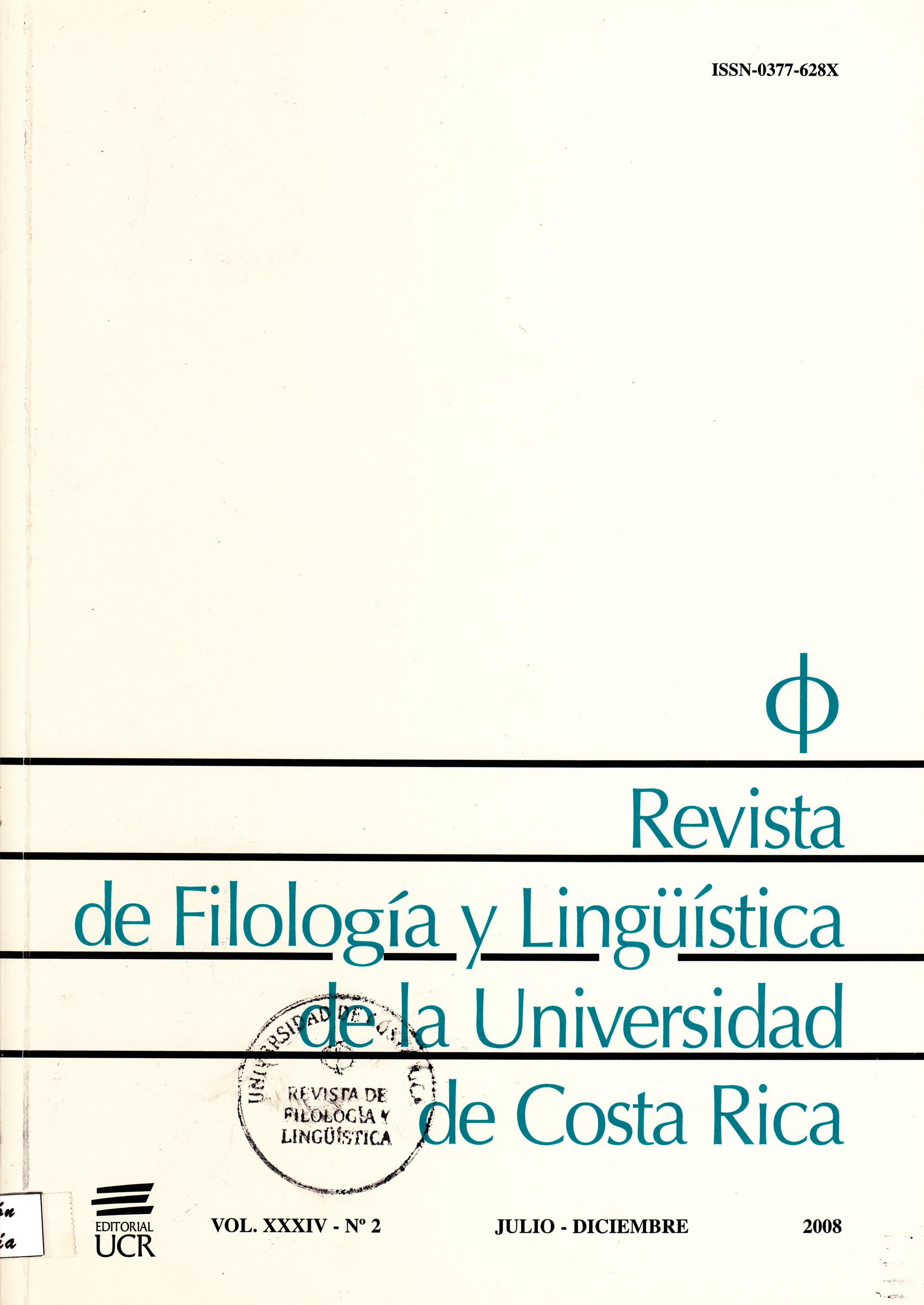Resumen
En este artículo se analizarán las estrategias del control totalitario del dictador dominicano Trujillo, retratado en La fiesta del Chivo: él se proyecta como el Padre de la Patria imprescindible mientras que, al mismo tiempo, se empeña en debilitar las estructuras familiares a través de sus violaciones sexuales a mujeres dominicanas. Urania Cabral encarna bien el trauma sexual sufrido por estas víctimas del dictador, y el concepto de “radical injustice” de Brett Levinson ayudará a iluminar el proceso difícil de recuperar de tal trauma en una sociedad posdictatorial.Citas
Abalos, David T. 1993. The Latino Family and the Politics of Transformation. Westport: Praeger.
Anderson, Benedict. 1987. Imagined Communities: Reflections on the Origin and Spread of Nationalism. London: Verso.
Caruth, Cathy. 1995. “Introduction”. Trauma: Explorations in Memory. Cathy Caruth (ed.). Baltimore: The Johns Hopkins UP. 3- 12, 151-157.
Castillo, Debra A. 1992. Talking Back: Toward a Latin American Feminist Literary Criticism. Ithaca: Cornell UP.
“Conversación entre Mario Vargas Llosa y Enrique krauze: La seducción del poder”. 2000. Letras libres. 19 (julio): 22-26.
Dealy, Glen Caudill. 1992. The Latin Americans: Spirit and Ethos. Boulder: Westview Press.
Elmore, Peter. 2001. “Los males del poder y los poderes del mal”. Mario Vargas Llosa: el fuego de la literatura. Tenorio Requejo (ed.). Lima: Arteidea Editores, 317-323.
Forcinito, Ana. 2004. Memorias y nomadías: géneros y cuerpos en los márgenes del posfeminismo. Santiago: Editorial Cuarto Propio.
Ford, Jane M. 1998. Patriarchy and Incest from Shakespeare to Joyce. Gainesville: UP of Florida.
Freud, Sigmund. 1989. “Family Romances”. The Freud Reader. Peter Gay (ed.). New York: W.W. Norton, 297- 300.
García, Bernardo. 1998.The Development of a Latino Gay Identity. New York: Garland Publishing.
Laing, R.D. 1969. The Politics of the Family and Other Essays. New York: Pantheon Books.
Levinson, Brett. 2001. The Ends of Literature: The Latin American “Boom” in the Neoliberal Marketplace. Stanford: Stanford UP.
Martín, José Luis. 1974. La narrativa de Vargas Llosa. Madrid: Editorial Gredos,
Mount, Ferdinand. 1992.The Subversive Family: An Alternative History of Love and Marriage. New York: The Free Press.
Polit-Dueñas, Gabriela. 2007. “Same Old Story: Of Women, Caudillos, and Literature in La fiesta del Chivo”. Letras Femeninas. 33 (2) (invierno): 99-119.
Riding, Alan. 1985. Distant Neighbors: A Portrait of the Mexicans. New York:Alfred A. knopf.
Rojas-Trempe, Lady. 2001. “Violencia político-sexual del Estado, trauma y la historia de una víctima en La fiesta del Chivo”. Mario Vargas Llosa: escritor, ensayista, ciudadano y político. Roland Forgues (ed.). Lima: Librería Editorial Minerva Miraflores, 537- 552.
Sedgwick, Eve kosofsky. 1985.Between Men: English Literature and Male Homosocial Desire. New York: Columbia UP.
Vargas Llosa, Mario. 2003. La fiesta del Chivo. Madrid: Punto de Lectura.
Williams, Raymond Leslie. 2000. Vargas Llosa: Otra historia de un deicidio. México, D.F.: Taurus.
Wintrobe, Ronald. 1998. The political economy of dictatorship. New York: Cambridge UP.

